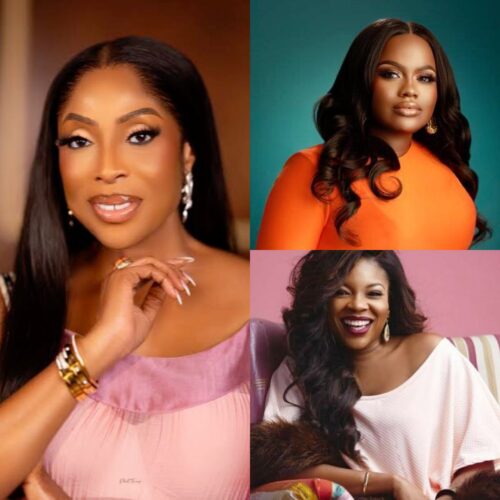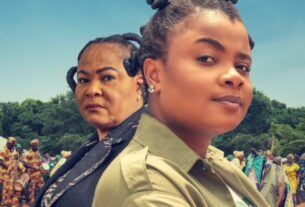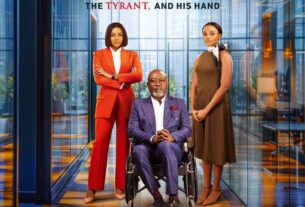For decades, Nollywood’s most visceral genres, action, crime, and the political thriller have been a man’s world. They were cinematic territories mapped by male directors, populated by male heroes, and defined by a distinctly patriarchal gaze. But a revolution is underway. This editorial argues that the emergence of women in these male-dominated spaces is not merely about inclusion; it is a revolutionary act of narrative reclamation. Visionary female directors, producers, and actresses are not just playing the game they are fundamentally changing its rules, challenging deep-seated patriarchal structures, and forging a new, globally resonant identity for Nigerian cinema.
Why it was a Men’s world in Nollywood
To understand the magnitude of the current shift, one must first understand how it all started. The traditional Nollywood action and crime genres were built on a specific and rigidly gendered foundation, reflecting and reinforcing the patriarchal norms of the society from which they sprang. Movies like; Daylight Robbery, Executive Crime, and Issakaba, often emerged as raw reflections of societal anxieties, mirroring a “desperation for survival at a time when the Nigerian economy was bereft of hope for the common masses”.
From its inception, Nollywood was a male-dominated industry where, as one scholar notes, “the men set the agenda and framed the images”. This control over the narrative machinery had a profound impact on the portrayal of women. Women were marginalized both on and behind the screen, their characters shaped by a “male gaze” that interrogated their subjectivity and desire primarily in relation to men.
The “C.A.G.E.” of Female Identity
This male-centric framing confined female characters within what can be described as a “C.A.G.E.” of identity, with their roles narrowly defined by their Class, Age, Gender, and Ethnicity. For decades, the portrayal of women in Nollywood was stuck in a loop of limiting and often negative stereotypes. They were consistently depicted as weak, subservient, materialistic, lazy, and emotionally dependent on men. Their domain was the domestic sphere which evolved around the kitchen and the bedroom and rather than the boardroom or the political arena. One of the most pervasive themes was the objectification of women, portraying them as sexual objects for male pleasure or as temptresses and seductresses whose primary function was to distract the male protagonist. Even when women were depicted in positions of power or success, this portrayal was often tinged with menace; Nollywood developed a penchant for showing successful and influential women as “dangerous and doomed for destruction”. This pattern was so deeply embedded in the industry’s DNA that multiple academic studies, analyzing films across two decades, concluded that there had been “no radical departure” or “major shift” in the stereotypical representation of women.
The change in the Industry
The architects of Nollywood’s new era are not just participating in the industry; they are actively reshaping its creative and commercial landscape. Through their production companies and singular directorial visions, women like Kemi Adetiba, Jade Osiberu, and Mo Abudu are seizing control of the narrative, particularly within the action, crime, and political thriller genres.
1. Kemi Adetiba has emerged as a “formidable force” in Nollywood, celebrated for her “bold storytelling and innovative filmmaking”. Her career began in radio and television before she transitioned to directing music videos, where she honed a sharp, dynamic visual style. Her feature film debut, the romantic comedy, The Wedding Party (2016), was a success, becoming the highest-grossing Nollywood film at the time and establishing her as a major directorial talent.
However, it was her 2018 political crime thriller, King of Boys, that cemented her status as a visionary. The film was a cultural reset, a sprawling epic that grossed an impressive ₦245 million and captured the Nigerian imagination. More than just a crime story,
While Adetiba redefined the political thriller, Jade Osiberu has carved out a distinct niche for herself, effectively “redefining the action-crime genre in Nollywood”. Through her production company, Greoh Studios, Osiberu is known for producing thrilling, high-stakes narratives with dynamic cinematography and a commitment to realism that gives her films a fresh, international appeal. Her landmark film, Gangs of Lagos (2023), marked a significant milestone for the industry as the first Nigerian Original film to stream exclusively on Amazon Prime Video. The film’s genesis reveals Osiberu’s focus on character-driven stories. She was inspired not by a desire for violence or spectacle, but by a moment of quiet observation in Isale-Eko, where she felt she was looking right into a scene from their lives. This led to her decision to tell the story from a “human angle,” exploring what it would be like to be born into and trapped by a life of crime.
At the forefront is Mo Abudu, a figure described by Forbes as “Africa’s Most Successful Woman”. More than a producer, Abudu is a “media mogul” and a “vanguard for New Nollywood” whose company, EbonyLife Media, has been instrumental in shaping the industry’s modern identity. EbonyLife has produced some of Nollywood’s highest-grossing films and has ventured into the crime and thriller genres with powerful films like Òlòtūré (2019), a harrowing investigation into human trafficking, and the historical drama Elesin Oba: The King’s Horseman (2022). Abudu’s groundbreaking deals with global giants like Netflix and Sony Pictures Television are not just business transactions; they are a testament to her vision of placing African stories, crafted with high production values, on the global stage.
Other powerful women in the industry includes; Funke Akindele, through her company Funke Akindele Network (FAAN), has become one of Nollywood’s most bankable directors, producing record-breaking blockbusters. Actress-producer: Iyabo Ojo founded Fespris Productions in 2004, dedicated to producing films that connect with audiences.
The On-Screen Warriors: A New Archetype of Nollywood Actress
The revolution being orchestrated behind the camera is brought to visceral life by a new generation of actresses who are redefining the female protagonist. They are stepping into physically demanding and emotionally complex roles, embodying a strength and agency rarely afforded to women in old Nollywood.
Sola Sobowale’s Cultural Reset in King of Boys
Sola Sobowale’s performance as Alhaja Eniola Salami in King of Boys is nothing short of a cultural reset. It was a “stellar performance” in which the role of “King” was deemed to suit her “so perfectly, it was like she was born to do this”. Sobowale delivered a masterclass in complexity, portraying a character who is simultaneously a ruthless crime lord, an ambitious political operator, and a mother consumed by profound grief over the loss of her children. Her performance is commanding and captivating, painting a portrait of a villain so deeply human that audiences found themselves cheering for her, blurring the lines between hero and anti-hero. The industry took note, awarding her Best Actress in a Leading Role at the prestigious African Movie Academy Awards for her iconic portrayal.
The Rise of Adesua Etomi-Wellington
While Sola Sobowale redefined the female crime boss, Adesua Etomi-Wellington has emerged as Nollywood’s premier action chameleon, deliberately pivoting her career toward physically demanding roles that showcase a different kind of female strength. An actress with a background in physical theatre, she has openly expressed her enjoyment of “doing my own stunts” and taking on “risky scenes that require physical strength”. This commitment is evident in the intense martial arts training she has undergone for several roles, establishing a new archetype for the female action star in Nigeria. In Muna (2019), she took on the titular lead, playing a victim of human trafficking who transforms into a swift and deadly hitwoman seeking revenge, a significant step into the pure action genre.
The rise of women in Nollywood’s action, crime, and political thriller genres represents a fundamental paradigm shift. This is not a fleeting trend or a simple matter of ticking a diversity box. It is a takeover, driven by a generation of formidable creators who are seizing the narrative reins and steering Nigerian cinema in a bold new direction. Visionaries like Kemi Adetiba and Jade Osiberu are not just adding a “female touch” to male-dominated genres; they are expertly leveraging genre conventions to tell complex, subversive, and deeply human stories that resonate with a global audience. On screen, actresses like Sola Sobowale and Adesua Etomi-Wellington are shattering old molds, embodying new archetypes of female power, ambition, and resilience that were once unthinkable.
This transformation, however, is not without its complexities or challenges. The path forward is still fraught with systemic obstacles, from funding disparities and industry bias to the delicate negotiation between cultural sensitivities and commercial pressures. The controversies surrounding these films are a testament to their disruptive power, proving that when women rewrite foundational narratives, they inevitably shake the establishment.
The world, at last, is paying attention.



